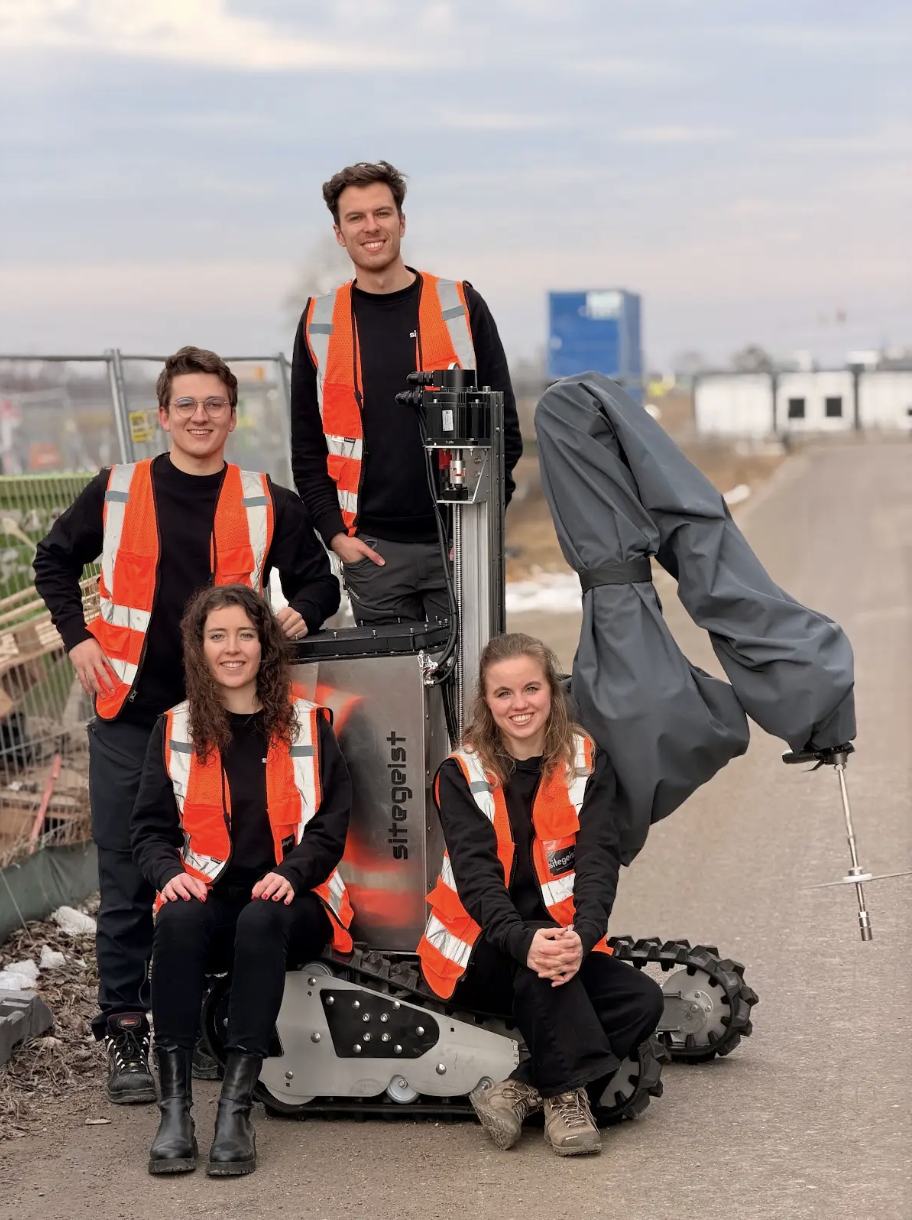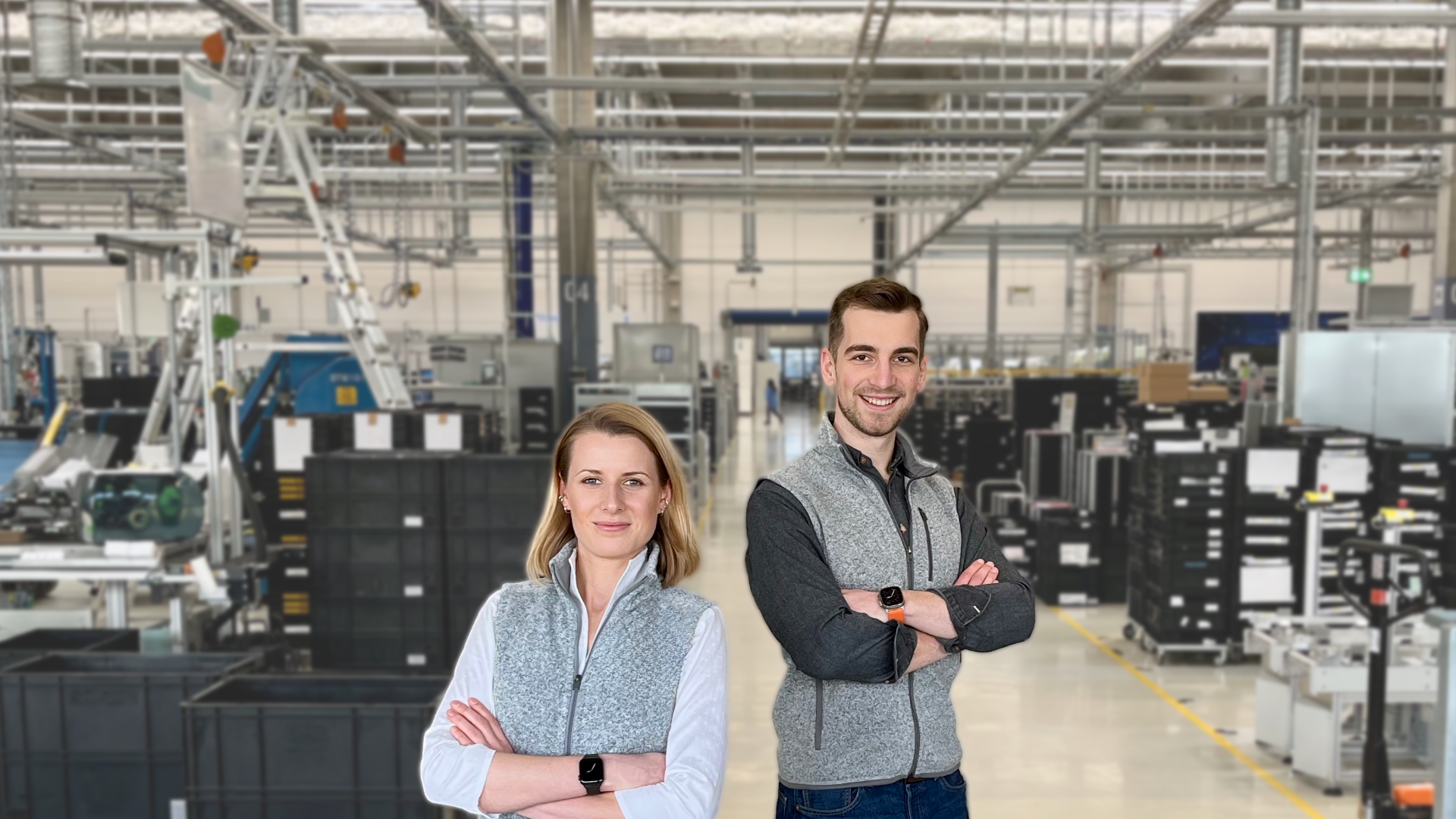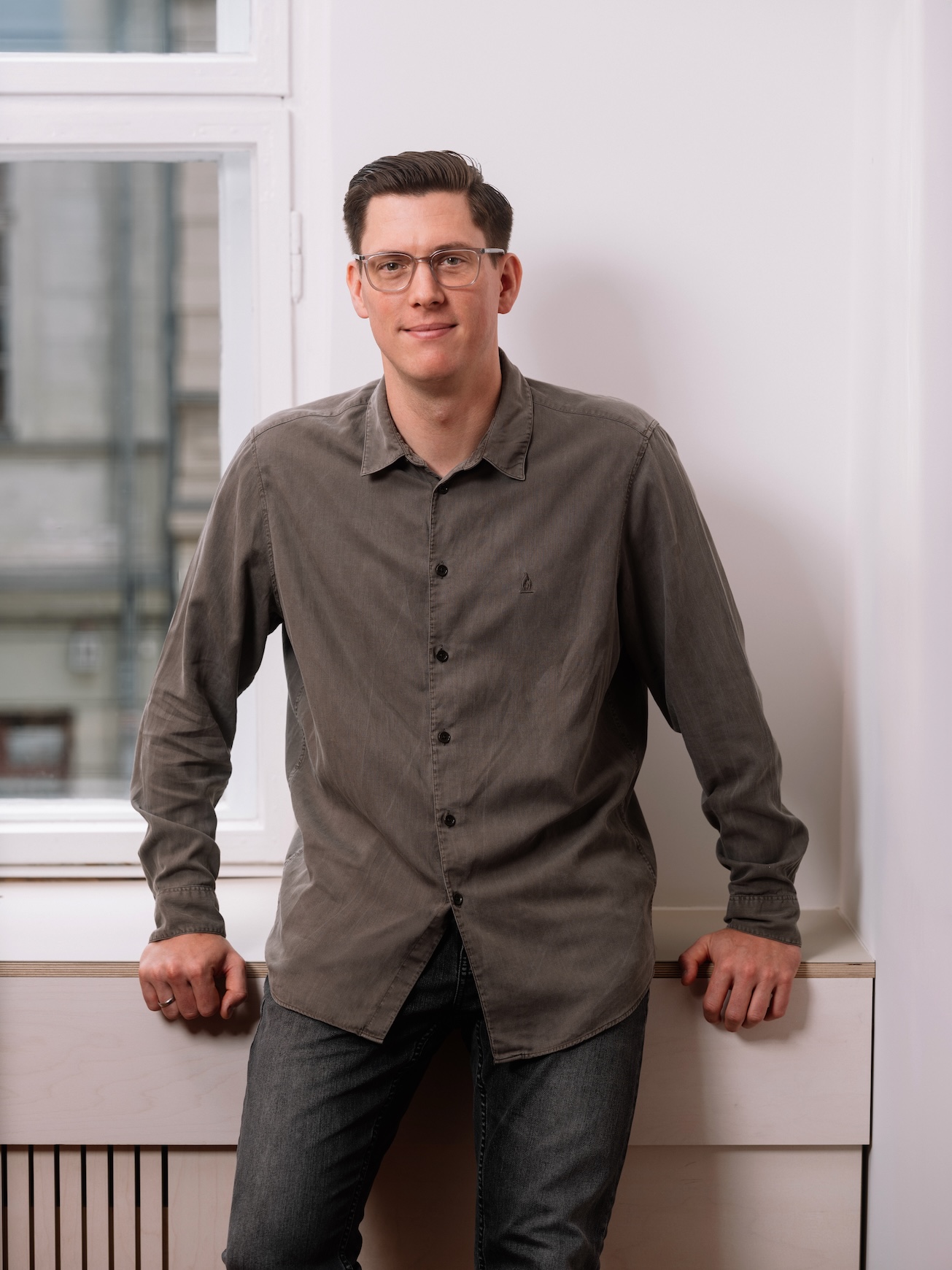The Unseen Potential of the Alpine Ecosystems of Europe
The Unseen Potential of the Alpine Ecosystems of Europe

One of the great things about being an investor is imagining a better future and having a small role in making it a reality. When we first saw the promise of Onward and the company’s mission to transform the lives of people with spinal cord injuries back in 2016, it seemed like science fiction. Thanks to the visionary research of Onward founders Professor Grégoire Courtine and Dr. Jocelyne Bloch and a lot of hard work by the Onward team and the team at .NeuroRestore, we are getting closer to using technology to restore the ability of the paralyzed to walk again. A few weeks ago a team of researchers led by Professor Courtine and Dr. Bloch published further research in the world’s leading science journal, Nature, detailing the safety and effectiveness of Onward’s Arc Therapy to improve upper limb mobility in people with chronic incomplete tetraplegia. This comes one year after another pathbreaking paper published in Nature, detailing how the Onward Arc Therapy was paired with a wireless brain-computer interface (BCI) to help a paralyzed 40-year-old man walk again with the power of thought.
These feats have rightfully gained lots of attention in the media (BBC, NBC, Washington Post from last year), and the Financial Times’ recently featured Onward in a Big Read on The Transformative Potential of Computerised Brain Implants. We’ve been a partner to Onward since the very early stages, and it’s been an honor to support their mission. It also demonstrates that Europe has incredible capabilities to innovate if we concentrate our efforts and take risks along the way.
We often talk about Europe as a coherent whole, but one of its strengths lies in the diversity of its regions. While the economic downturn has had a chilling effect on startup funding over the last year, data published by Sifted suggest that the Alpine regions of Switzerland and Austria are.
As a venture capital firm that originally hails from Switzerland and has always had a strong presence in the region, we were particularly gratified to see the acceleration of the Alpine ecosystems at this challenging time. And we were also thrilled to see so many of our portfolio companies on Sifted’s list of the top startups in Austria and Switzerland to watch (a heartfelt congratulations to Araris Biotech, Decentriq, LatticeFlow, PriceHubble, and Skribble).
We have long believed that the Alpine regions not only offer enormous potential but have been a bigger part of the European tech story than many realize. I wanted to zoom in on a few reasons why before turning to what remains to be done.
Strong network of ‘hidden champions’
The Alpine region forms the bottom portion of what economists and geographers sometimes refer to as the “Blue Banana” - the central axis in Europe, where the majority of people, industry, and capital can be found. Like the neighboring regions of southern Germany and northern Italy, this part of the continent is awash with “hidden champions”, companies that are usually family-owned, export-oriented, global market leaders, and technology-driven. This concentration of companies means a concentration of human capital as well - people with both the technical sophistication and business experience to deliver high-quality products and services, understand what global markets need, as well as anticipate how future trends might play out.

Globally recognized network of educational and research institutions
The Alpine region also has a comparatively dense network of universities, research centers and other institutions of higher learning that complement and support the industrial base. From leading business schools such as the University of St. Gallen (HSG), IMD Business School, HEC Lausanne, and Vienna University of Economics and Business to technical universities such as the ETH Zurich, EPFL, and the Vienna University of Technology, most of these names rank highly both in Europe and globally. These top universities are flanked by an equally dense network of research centers that are either affiliated directly with universities, such as the ETH system, or engage in fundamental and applied research that is world-renowned, from publicly funded organizations such as the Max Planck Society to private ones such as the Novartis Institutes for BioMedical Research. This means an unprecedented concentration of expertise, technical know-how, as well as industrial applicability. (Nearby Munich also offers world class universities such as the Technical University of Munich and research centers like Fraunhofer.)
Campus Spin Outs
The region has shown an explosive amount of company creation over the last 25 years as the Sifted study shows, and much of this is connected to the campus in some way. Hundreds of companies were founded in connection with the HSG campus, including On Running and WeFox. ETH Zurich alone has spun out over 500 startups from its campus since 2000. This is especially crucial for subject areas known as DeepTech. A report by Dealroom demonstrates just how successful Switzerland has become in attracting an impressive amount of venture capital for Deep Tech - roughly EUR 1.2 billion - making it one of the most compelling destinations in Europe for the Deep Tech investments, on par with the Oxford-Cambridge axis in the UK.
What remains to be done?
Despite this impressive track record, the Alpine ecosystems still have a ways to go. Many research institutes do not offer the ideal incentive structure, either requiring an onerous share structure that makes a campus spin off far less attractive to later investors or have overly complicated guidelines that result in the same. While most of these institutions have understood how important spin offs are to the dynamism of their respective ecosystem, balancing the original mission of the organization, which is to focus on research and teaching and/or industry collaboration, with the relatively new mission of company creation, is inherently difficult. Here Munich offers a good example with UnternehmerTum, which has created a hub between academia and entrepreneurship, helping academics and would-be founders through a variety of services and investment opportunities, as well as connecting businesses with startups.
Perhaps most important are the norms that hold sway in the Alpine regions - both in terms of fostering entrepreneurship and risk-taking. Way too many talented students still aspire to work for large, established companies, rather than build their own. And far too many financial institutions in Switzerland and Austria remain skeptical about venture capital as an asset class. This means that the Alpine ecosystems remain fundamentally under-invested relative to their overall wealth.
We at b2venture have been proud to support these ecosystems since our founding, partnering closely with START Global at the HSG and funding spin-offs from universities throughout Switzerland and beyond. As an early stage investor, we love to collaborate with universities, knowing that students and professors bring fresh perspectives and energy to emergent challenges and opportunities such as AI, climate change, and health.
The trajectory of Onward is a powerful demonstration of how we can use Europe’s strengths as a center of world-class research to create innovative companies with a global relevance. The company would not exist without the fundamental research of locations like Lausanne, Switzerland and the EFPL, the University of Lausanne, and more. This is Deep Tech at its best and should serve as a reminder that we have a lot more potential to unlock within Switzerland and across Europe.

One of the great things about being an investor is imagining a better future and having a small role in making it a reality. When we first saw the promise of Onward and the company’s mission to transform the lives of people with spinal cord injuries back in 2016, it seemed like science fiction. Thanks to the visionary research of Onward founders Professor Grégoire Courtine and Dr. Jocelyne Bloch and a lot of hard work by the Onward team and the team at .NeuroRestore, we are getting closer to using technology to restore the ability of the paralyzed to walk again. A few weeks ago a team of researchers led by Professor Courtine and Dr. Bloch published further research in the world’s leading science journal, Nature, detailing the safety and effectiveness of Onward’s Arc Therapy to improve upper limb mobility in people with chronic incomplete tetraplegia. This comes one year after another pathbreaking paper published in Nature, detailing how the Onward Arc Therapy was paired with a wireless brain-computer interface (BCI) to help a paralyzed 40-year-old man walk again with the power of thought.
These feats have rightfully gained lots of attention in the media (BBC, NBC, Washington Post from last year), and the Financial Times’ recently featured Onward in a Big Read on The Transformative Potential of Computerised Brain Implants. We’ve been a partner to Onward since the very early stages, and it’s been an honor to support their mission. It also demonstrates that Europe has incredible capabilities to innovate if we concentrate our efforts and take risks along the way.
We often talk about Europe as a coherent whole, but one of its strengths lies in the diversity of its regions. While the economic downturn has had a chilling effect on startup funding over the last year, data published by Sifted suggest that the Alpine regions of Switzerland and Austria are.
As a venture capital firm that originally hails from Switzerland and has always had a strong presence in the region, we were particularly gratified to see the acceleration of the Alpine ecosystems at this challenging time. And we were also thrilled to see so many of our portfolio companies on Sifted’s list of the top startups in Austria and Switzerland to watch (a heartfelt congratulations to Araris Biotech, Decentriq, LatticeFlow, PriceHubble, and Skribble).
We have long believed that the Alpine regions not only offer enormous potential but have been a bigger part of the European tech story than many realize. I wanted to zoom in on a few reasons why before turning to what remains to be done.
Strong network of ‘hidden champions’
The Alpine region forms the bottom portion of what economists and geographers sometimes refer to as the “Blue Banana” - the central axis in Europe, where the majority of people, industry, and capital can be found. Like the neighboring regions of southern Germany and northern Italy, this part of the continent is awash with “hidden champions”, companies that are usually family-owned, export-oriented, global market leaders, and technology-driven. This concentration of companies means a concentration of human capital as well - people with both the technical sophistication and business experience to deliver high-quality products and services, understand what global markets need, as well as anticipate how future trends might play out.

Globally recognized network of educational and research institutions
The Alpine region also has a comparatively dense network of universities, research centers and other institutions of higher learning that complement and support the industrial base. From leading business schools such as the University of St. Gallen (HSG), IMD Business School, HEC Lausanne, and Vienna University of Economics and Business to technical universities such as the ETH Zurich, EPFL, and the Vienna University of Technology, most of these names rank highly both in Europe and globally. These top universities are flanked by an equally dense network of research centers that are either affiliated directly with universities, such as the ETH system, or engage in fundamental and applied research that is world-renowned, from publicly funded organizations such as the Max Planck Society to private ones such as the Novartis Institutes for BioMedical Research. This means an unprecedented concentration of expertise, technical know-how, as well as industrial applicability. (Nearby Munich also offers world class universities such as the Technical University of Munich and research centers like Fraunhofer.)
Campus Spin Outs
The region has shown an explosive amount of company creation over the last 25 years as the Sifted study shows, and much of this is connected to the campus in some way. Hundreds of companies were founded in connection with the HSG campus, including On Running and WeFox. ETH Zurich alone has spun out over 500 startups from its campus since 2000. This is especially crucial for subject areas known as DeepTech. A report by Dealroom demonstrates just how successful Switzerland has become in attracting an impressive amount of venture capital for Deep Tech - roughly EUR 1.2 billion - making it one of the most compelling destinations in Europe for the Deep Tech investments, on par with the Oxford-Cambridge axis in the UK.
What remains to be done?
Despite this impressive track record, the Alpine ecosystems still have a ways to go. Many research institutes do not offer the ideal incentive structure, either requiring an onerous share structure that makes a campus spin off far less attractive to later investors or have overly complicated guidelines that result in the same. While most of these institutions have understood how important spin offs are to the dynamism of their respective ecosystem, balancing the original mission of the organization, which is to focus on research and teaching and/or industry collaboration, with the relatively new mission of company creation, is inherently difficult. Here Munich offers a good example with UnternehmerTum, which has created a hub between academia and entrepreneurship, helping academics and would-be founders through a variety of services and investment opportunities, as well as connecting businesses with startups.
Perhaps most important are the norms that hold sway in the Alpine regions - both in terms of fostering entrepreneurship and risk-taking. Way too many talented students still aspire to work for large, established companies, rather than build their own. And far too many financial institutions in Switzerland and Austria remain skeptical about venture capital as an asset class. This means that the Alpine ecosystems remain fundamentally under-invested relative to their overall wealth.
We at b2venture have been proud to support these ecosystems since our founding, partnering closely with START Global at the HSG and funding spin-offs from universities throughout Switzerland and beyond. As an early stage investor, we love to collaborate with universities, knowing that students and professors bring fresh perspectives and energy to emergent challenges and opportunities such as AI, climate change, and health.
The trajectory of Onward is a powerful demonstration of how we can use Europe’s strengths as a center of world-class research to create innovative companies with a global relevance. The company would not exist without the fundamental research of locations like Lausanne, Switzerland and the EFPL, the University of Lausanne, and more. This is Deep Tech at its best and should serve as a reminder that we have a lot more potential to unlock within Switzerland and across Europe.

The Author

Christian Schütz
Partner
Christian Schütz is Partner at b2venture, responsible for managing the firm’s Industrial Technologies Fund, biotech and health-related investments, as well as serving as a member of b2venture’s Board of Directors.
Team






.jpg)












.png)




.jpg)
-min.png)


.jpg)













































.jpg)





















